|
 It was in the summer of 1964 that Gary Rossington, Allen Collins, and Ronnie Van Zant began playing together for the first time. At the time, Rossington (guitar) was in a band called "Me, You, and Him" with Bob Burns (drums) and Larry Junstrom (bass). Van Zant was singing with a band called "Us", and Collins played guitar in a band called the "Mods". Rossington and Collins were about 14, Van Zant two years older.
A few days after Rossington, the first to quit, left school, they played a gig at Jacksonville's Forest Inn. When he introduced the band, Van Zant said, "We're the One Percent, but we're gonna change our name tonight. Everybody who wants to change it to Leonard Skinner, applaud." The crowd knew the story, and they knew Skinner - the applause was deafening. So the band kept the name, changing the vowels to Ys in a token attempt at anonymity.
Working sun-up to sun-down, writing and rehearsing, the band began to take shape. They won a Battle of the Bands in Jacksonville, and landed their first tour, as the warm-up band for Strawberry Alarm Clock. The $50 a week that they earned on that tour was twice what they had been making in Jacksonville (for their very first gig, a private party in a barbecue joint, the five members of the band had made a grand total of $10, from which they had to furnish gas money). For the first time, the band assembled a road crew. It included Kevin Elson, who later produced "Journey", and mixed "Lynyrd Skynyrd 1991". By the fall of 1970, Skynyrd had not only a road crew but a manager,Alan Waldon, brother of Capricorn Records' Phil. He arranged for them to record their first demos, at Quinvy Studios outside Muscle Shoals, Alabama. The band was trying to find its own voice, and they did - one of the songs they recorded at Quinvy was the original version of "Free Bird".
During the Qinivy sessions, Johnson and his partner Tim Smith taught the band how to record, starting with such basics as putting the bass and drums together to form a rhythm section. Skynyrd had to work whenever there was studio time free, even if it was in the middle of the night, but they were finally recording. During those sessions they laid down the first multi-track version of "Free Bird", as well as "One More Time", "I Ain't the One","Trust", "Gimme Three Steps", and twelve other songs. Ronnie affectionately dubbed the Muscle Shoals studio crew "The Swampers", and paid tribute to them on "Sweet Home Alabama". Although Alan Waldon shopped the Muscle Shoals tapes around, he found no takers. Skynyrd returned discouraged to Jacksonville, only to find that they weren't even welcome to local bookers. They began to commute to Atlanta, where they found a home base at Funnuchio's, one of the roughest bars in the city. Although shootings and stabbings were nightly occurrences, the band began to play there regularly. They borrowed the money for these trips from Van Zant's wife, Judy. (He had met her in 1969, when the band were still calling themselves the One Percent, and were playing mostly Cream and Creedence covers. She was with him throughout his career, and had this to say about marriage to a dedicated musician; "I understood that his music was what was most important to Ronnie. When you marry a musician, you have to understand that their music is first and foremost. It's a different way of life.") It was at Funnuchio's in 1972 that Skynyrd ran into Al Kooper, who was in the process of launching his MCA-backed Sounds of the South label. Kooper had played with Bob Dylan's first electric band on "Bringing It All Back home", and was one of the forces behind Blood, Sweat, and Tears. He also worked with Steven Stills and Mike Bloomfield on the "Super Session" album. Gary Rossington said, "Kooper was big-time to us, so we were honored and freaked out that he was out in the club listening to us. Then the next night, we looked out and he was in the same seat, so after the gig we stopped and said, "Hey, what's going on?" The upshot was that Kooper offered the group a contract, and after some initial hesitation, they accepted.
At this point, the band had a catalogue of almost twenty songs. Deciding which ones to perform, and how, made Skynyrd's sessions with their new producer fairly tense. Kevin Elson remembered that "there was always a touch of tension. Al had a lot of arrangement ideas and keyboard ideas that the band didn't agree with initially - but I think that the tension and arguing made for a better record in the end. The band would never back down from what they wanted, and Al didn't tend to back down anyway." Kooper himself said,"I taught them how to use the studio. I also taught them how to use the bass and the bass drum in a competitive way. But of all the bands I ever worked with, they were the best-arranged. What they did with guitar parts was truly amazing - they had the pulse of the street. They absolutely had it. What fights we had were over my editorial decisions, and I was often outvoted. Ronnie ran that band with an iron hand." Kooper's knowledge of modern recording techniques gave the band new tools. A stand-out example is the overdubbed track of "Free Bird", where Collins added a second guitar part slightly behind his solo. This created the dual guitar sound, reminiscent of Wishbone Ash's "Phoenix", that climaxes the album.
Leon Wilkeson returned to the group after the recording of "(pronounced)", which allowed Ed King to move from bass to guitar. When they had worked out the new division of labor, they found that Collins' stabbing Gibson Firebird, Rossington's whining Les Paul, and King's metallic Strat chops complemented each other amazingly well. Although they had already written most of the songs that would make up the album, "Second Helping", the new line-up resulted in a burst of creativity. "Sweet Home Alabama" was written even before the first album was released. In July of 1973, Kooper's Sounds of the South label gave a party for the music industry at Richard's, an up-scale club in Atlanta, to introduce three southern bands. One of them was Lynyrd Skynyrd. They had written a song, "Workin' for MCA", just for the occasion, which went over well with the crowd. MCA signed them for $9,000, almost all of which they spent on new equipment. The Who's Peter Townsend had heard and liked "(pronounced)", and he got Who manager Peter Rudge to sign Skynyrd to open for them on the "Quadrophenia" tour. Skynyrd were used to playing small clubs, to audiences of two to three hundred people, and opening night found them facing a crowd of 20,000 at the Cow Palace in San Francisco. They were terrified, and decided to cope with it by getting as drunk as possible. They tore through their five-song, twenty-minute set in a state of panic, but the crowd liked them, and they got good write-ups. The band did well on that tour, and even managed to earn encores, which was quite a feat for a little-known band in the face of a rabid Who crowd. About halfway through the tour, Peter Rudge approached the group with an offer to become their manager. They agreed, and left Alan Waldon.
Van Zant wanted to record "Sweet Home Alabama" as "Second Helping"'s single, but both Kooper and the MCA brass thought it was too regional. They opted for "Don't Ask Me No Questions" instead. In fact "Don't Ask Me ..." didn't do well, and three people from the MCA promotion department decided to push "Alabama". MCA's southern promotion team of Jon Scott, Mike Scherlock, and Leon Tsilis got Top Forty stations to start playing the song, and it became an enormous hit in the southern states. The popularity of the song kept growing, and eventually MCA couldn't ignore it any longer. They released "Alabama" as a single in June of 1974, and it became Skynyrd's only Top Ten single, peaking at number 8. By September, both "Alabama" and "Second Helping" were gold records, followed in December by "(pronounced)". The success of "Alabama" had another consequence; it identified Skynyrd as a "Southern Band"; MCA's decision to add a Confederate flag to their live stage backdrop completed the image. The common conception is that Ronnie Van Zant was some kind of Dixie reactionary, but the truth is that his lyrics express the frustrations and aspirations of the downtrodden everywhere, not just of the South. There is something traditionally Southern, however, about the way his outrage was often mixed with humor, a wry blend that has been characteristic of the region since the loss of the War of Northern Aggression. Lynyrd Skynyrd toured extensively in support of their first two albums, and it became too much for Bob Burns. Pleading exhaustion, he left the band, and was replaced on drums by Artimus Pyle.
The band went on a 90 day, 61 date, "Torture Tour" in support of the album. Although it was a commercial success, the tour left a trail of fistfights, wrecked hotel rooms, sloppy performances, and cancelled dates. Van Zant said of this tour,"We were doing bottles of Dom Perignon, fifths of whiskey, wine, and beer. We couldn't even remember the order of the set; some guy sat crouched behind an amp and shouted it at us. We made the Who look like church on Sunday. We done things only fools would do." Halfway through the tour, Ed King left the band, unable to cope with the pace and the lifestyle. Collins and Rossington divided King's parts for the remainder of the tour.
Van Zant said,"We had to quit doin' that song, because almost every audience would throw a handful of bullets, you know, like .38 slugs. We wrote it about the bullets in the music industry trade magazines, but I'd say "Gimme back my bullets", and they'd let me have it." After the "Bullets" album, Skynyrd added a trio of female gospel-type singers to their act; Jo Billingsley, Leslie Hawkins, and Cassie Gaines. With the next recording session set for July of 1976, the band set about finding a third guitarist before then. They had auditioned players like Leslie West and Wayne Perkins when Cassie Gaines mentioned that her younger brother Steve was a guitarist. They agreed to audition him more as a favor to Cassie than anything else, but once he started jamming with them it was clear that a match had been made. Van Zant said of him,"This kid is a writing and playing fool. He's already scared everybody in the band into playing their best in years". Gary Rossington said,"He was a freak of nature, he was so good. He inspired us tremendously. He was a great singer, too, and it sort of kicked Ronnie in the ass a little bit. He had to try harder because Steve was there."
Although the live album was good, it could not convey the excitement of an actual gig. Skynyrd was by now one of the premier performance bands in the world. At the Gator Bowl benefit for President Jimmy Carter in July of 1976, Skynyrd was the main attraction; in August they performed at Britain's Knebworth Festival, earning rave reviews at the expense of the headlining Rolling Stones. Still, "One More for the Road" quickly entered the Top Ten, earning gold and then platinum status. In part to celebrate this success, the band traded their touring bus for a private plane. Skynyrd and Tom Dowd went into Miami's Criteria Studios in April of 1977 with enough material to complete an album. Once the recording was done, however, disagreements broke out over the post-production values, and the band went on tour none too satisfied with the results of the sessions. In spite of those problems, the band's summer tour in 1977 was their most impressive ever. The San Francisco Examiner said that they "overpowered most of the other acts" and that "a tidy mixture of country standards, hard-rocking originals, and unconcerned euphoria gained for Skynyrd what none of the other bands were able to match: a straight-forward triumph." At the end of the tour, the band booked themselves into Doraville's Studio One to finish the album begun at Criteria. Tom Dowd was committed to a project in Toronto, and sent engineer Barry Rudolph to Georgia as his surrogate. Rudolph had engineered Waylon Jennings' classic "Are You Ready for the Country?"album, and those credentials made him welcome in the Skynyrd studio.
No matter how Van Zant felt about it, "Street Survivors" was a fantastic success. It was the first Skynyrd album to be certified gold upon release, and all indications were that it would become the most popular in their twelve year career. The album cover, showing the band standing tall while surrounded by flames, seemed likely to become an American icon. "Street Survivors" was released on October 17, 1977. On October 20, Lynyrd Skynyrd's private 1947 Convair 240 plane ran out of gas due to "an engine malfunction of undetermined nature", and crashed in a forest near McComb, Mississippi. Steve Gaines, Cassie Gaines, and Ronnie Van Zant were killed upon impact. The rest of the band suffered serious injuries that, in some cases, caused permanent physical damage. The final irony was that this had been billed, after the album, as the "Tour of the Survivors".
The band called on Derek Hess to replace Pyle. He remembered, "It happened all of a sudden, like over a weekend. I was just doing another straight job, as a ship's chandler. I was
extremely frustrated and about ready to hang it up. Billy Powell called me and said this is a good chance, and it kept me awake the rest of the night."
The band then entered about a month's worth of heavy rehearsals to bring Derek up to date on the material. The band gelled, and Rossington Collins debuted at a series of concerts in Orlando, Gainesville and New Orleans. Although the band entered these shows with a great deal of trepidation, the audiences not only accepted the them, they "nearly tore the theater apart with their wild cheering, stomping and demands for more encores." Of course, there could be only one encore. According to Phil Kloer, who reviewed the show for the Florida Times Union, 'Freebird' was the "most intense, moving, musically brilliant quarter hour of rock I have ever heard."
Rolling Stone published an account of the "Collins Rossington Band" that quoted Gary saying, "We're not copying Lynyrd Skynyrd. We're not using the name and we're not falling back on it at all, but we did write the music and play it, so I guess it will sound like that. It's good as shit music."
On the other hand, MCA rep Leon Tsilis insisted the name came about when he, Allen and Gary met at Allen's home to discuss a "Best of ..." album. Leon recalled the three of them looking at
Allen's wall of Lynyrd Skynyrd RIAA awards. "I looked up and said, 'Christ, you guys got a lot of gold and platinum records up here.' And that's were it came from -- Gold & Platinum."
At MCA's 1980 annual meeting, Tsilis received several awards for providing the label with the album that made the year. He laughed, "Everybody was patting me on the back and these were the same people who tried to stop the album from coming out." Asked about MCA's reluctance on the Gold & Platinum project, Gary Rossington bluntly replied, "Well, they're stupid, 'cause it just helped it, didn't it?"
"We will compare our guitar army with any guitar army, past or present. We are the best and we will show it. We issue a challenge to any others like us in the world, and, being Southern gentlemen, we will tip our hats if beat, slip back into a cypress swamp, and emerge again
ten-fold better. There's too many 'gators in those swamps, so we'll stay out here, because we won't be surpassed by any guitar army, anywhere, anytime."
In 1986, Collins was involved in an automobile accident that killed his girlfriend and left him permanently paralyzed from the waist down. His injuries were so severe that he only had limited use of his upper body and arms. In 1989, Allen developed pneumonia as a result of decreased lung capacity from the paralyzation. On January 23, 1990, in a Jacksonville Hospital, Allen passed away.
As the tenth anniversary of the plane crash approached, several former Skynyrd members began discussing the possibility of a reunion concert. Joining Rossington, Powell, Wilkeson and
Artimus Pyle were original guitarist Ed King (who had left the band in 1975) and new guitarist Randall Hall, a long-time friend of the Skynyrds who had played in the Allen Collins Band.
Collins personally picked Hall to take his place in the band and served as a consultant on the tour. Perhaps most significantly, Johnny Van Zant - brother of Ronnie and an accomplished
recording artist in his own right - was enlisted to take over the lead vocal spot. "It took me a long time to make up my mind that I was going to do it," Johnny said. "Ronnie was my brother, he
was my hero, he was my everything. He's the reason I got into the music business. I'm not trying to be Ronnie. Only Ronnie was Ronnie; he was one of a kind." But, as Gary said, "You know,
they're brothers; they talk alike,and they look alike, and so they're going to sound alike." In fact, it is safe to say that it was Johnny's presence that not only made the Tribute Tour possible, but validated the eventual re-establishment of the band.
As the Tribute band got more shows under their collective belt, the Lynyrd Skynyrd spirit was rekindled, the passion restored. What had started out as a tribute to the past quite naturally
became part of the present, and held out prospects for the future. "You know, at first we weren't going to do anything but the Tribute Tour," Gary recalled, "but it was the people who came
to see us that made us realize it was all right to go on. It was like they were saying, 'It's okay, go for it.' We got a lot of mail from fans while we were on the road, and they didn't want us to stop."
"At first, I figured it was going to be just a tour", Johnny concurred, "and that we would do the best we possibly could, and then put it to rest again. But we had so much fun, that we decided to start writing, too. We all got caught up in it, and we said, 'Well, gosh, should we do a record?' So we decided to just keep writing and see what would happen."
On the last weekend of December, 1995, Lynyrd Skynyrd returned to Atlanta for the premiere of "Freebird - the Movie", a concert film of the original band's landmark Knebworth performance. It
was preceded by "Freebird - the Jam", a four-hour concert featuring more than forty different artists. At the end of Al Kooper's set, several members of Skynyrd came onstage to jam with
him. Powell, Wilkeson, and Rossington were well-received by the crowd, but the real surprise came when Bob Burns sat down behind the drums - the first time in twenty-one years that he had played with the band.
Cabin Fever Entertainment is planning to tour "Freebird - the Movie" around the country in the winter of 1996-97, and arrangements have been made with MCA Records to release the
soundtrack. It has been digitally re-mastered by Tom Dowd, and its quality is reportedly excellent. Lynyrd Skynyrd has been proposed for induction in the Rock and Roll Hall of Fame in 1997.
*At the time of writing (July 1996), Ed King was at home in Nashville awaiting a heart transplant. Because he needed to remain near the hospital, he was dropped from the last tour. On June 20, 1996 he filed suit against the band in U.S. District Court. Skynyrd returned to the United States from a European tour on July 1. Their response to King's lawsuit is still unknown.
Ed King, formerly of Lynyrd Skynyrd writes, "I appreciate your concern about my health. I just received a bunch of e-mail from the Freebird Foundation and your note was included. I'm actually quite improved. So much so that 3 weeks ago the hospital called saying they had a heart and I turned them down! Though I will need one for sure one day, right now's not the time. If I had a band to return to, I'd probably take it...but that's not going to happen.
Sorry to say, we've parted ways on a bad note...you've probably heard. Aside from that, I haven't felt this good in years and I'll be moving on to
other things."
Well, if it isen't one lawsuit it's another. This time its Randall Halls turn to take a shot at his former band mates. (see story below)
A former guitarist for the Jacksonville-based band Lynyrd Skynyrd is
suing five other members, claiming they defrauded him of at least
$500,000 and forced him out of the classic Southern rock group.
Randall Hall, who toured with the band from 1988 to 1994, says he was
bilked of his share of three years of earnings from the sale of concert
tickets, merchandise, albums and videos, according to a lawsuit filed in
April in Duval County.
Hall says he was axed and defrauded after refusing to divide his share
of ownership in several Lynyrd Skynyrd-related businesses.He wants unspecified damages to cover his lost income and punitive damages to punish his former friends for breaking contracts.
"Randall has been denied the opportunity to perform for the past three
years," said his attorney, Chris Qualmann of Orlando. "He is entitled
to what he ought to have been paid had he been treated as an equal
member of the group." Qualmann said he won't know how much money the 43-year-old Middleburg man is owed until Lynyrd Skynyrd-related corporations release their financial records. The group, best known for its rock classics Freebird and Sweet Home Alabama, continues to tour and attract large crowds.
Joe Boyland, the band's co-manager, said, "I know what went down and,
frankly, the lawsuit doesn't make much sense to me." "If [Hall] says he was fired and he said he was pushed out, that simply isn't true," Boyland said. "I'm not saying Randall Hall didn't perform well for Lynyrd Skynyrd. I'm saying there's a lot of things that go into being in a concert band and when [the other band members] asked him to make some adjustments in 1993, he quit . . . The band never understood why."
Boyland said those adjustments centered on things like Hall being on
time for rehearsals and performances, and having a more positive
attitude.
Bruce Hermelee, who represents the five Lynyrd Skynyrd defendants, said
yesterday he wants the case dismissed because it is "not legally
sufficient." He would not comment on the lawsuit's claims, but said they would be answered by his response, which he must file by Tuesday.
Hall is suing guitarists Gary Rossington and Ed King, pianist Billy
Powell, bassist Leon Wilkeson and lead singer Johnny Van Zant.
I had been told that the APB band was a cut above the current touring Skynyrd band, but being one that needs to experience things for himself, I jumped at the opportunity when the band recently played at Addies in Manassas, VA.
Folks, the reports are true!! Artie and the boys belt out the Skynyrd tunes with more passion and conviction then the current Skynyrd line-up. Not only that, they kick butt when it comes to performing their own brand of southern blues rock. This is definitely a band to be watching and the one that someday could be carrying the Lynyrd Skynyrd name.
For more information check out the A.P.B. website at apbband.com
Want to know more about Lynyrd Skynyrd? Well, this is the book for you. Lee Ballinger weaves historical and current interviews with every member of Lynyrd Skynyrd together with the perspectives of their friends, collaborators and chroniclers, including musicians Charlie Daniels, Jimmy Hall, and Al Cooper, journalists John Swenson & Cameron Crow, producer Tom Dowd, and many more--even that immortalized teacher, Leonard Skinner, The result is an intensely personal backstage history of euphoric triumph and calamitous tragedy, your best look ever at a group of rugged street survivors and their earthshaking effect on rock & roll.
Order yours now from Amazon.com
|
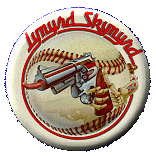 This is not the ususal M-File, because it takes on a band, Lynyrd Skynyrd, that is hardly an unknown quanity. The intention here is to give a clear and un-biased picture of one of the truly great bands of all time. There are a lot of graphics and some animation on this page, most never seen before. With all the information and graphics contained on this single page you can expect a long time for everything to load in properly, but it's worth it. Enjoy! (Argus & Coyote Red for "Skymarshall Productions")
This is not the ususal M-File, because it takes on a band, Lynyrd Skynyrd, that is hardly an unknown quanity. The intention here is to give a clear and un-biased picture of one of the truly great bands of all time. There are a lot of graphics and some animation on this page, most never seen before. With all the information and graphics contained on this single page you can expect a long time for everything to load in properly, but it's worth it. Enjoy! (Argus & Coyote Red for "Skymarshall Productions")
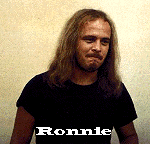 The story of their original meeting is a fitting one for a band that carried a reputation as roughnecks throughout their career. All three played Little League baseball. One day when Rossington and Burns were watching the older boys play, Van Zant hit a line drive that caught Burns in the head and knocked him out. After the game Van Zant looked them up to be sure Burns was all right. They introduced themselves, went over to Burns' house - still in their uniforms - and played some songs together. Rossington said,"That was it, that was the start of Lynyrd Skynyrd. So if Ronnie wouldn't have hit that foul ball, there wouldn't be no Skynyrd."
The story of their original meeting is a fitting one for a band that carried a reputation as roughnecks throughout their career. All three played Little League baseball. One day when Rossington and Burns were watching the older boys play, Van Zant hit a line drive that caught Burns in the head and knocked him out. After the game Van Zant looked them up to be sure Burns was all right. They introduced themselves, went over to Burns' house - still in their uniforms - and played some songs together. Rossington said,"That was it, that was the start of Lynyrd Skynyrd. So if Ronnie wouldn't have hit that foul ball, there wouldn't be no Skynyrd."
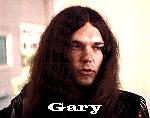 After a while, the group decided that they needed another guitar player because, as Rossington put it, "I didn't know barre chords real good, and the little amp built into my guitar just wouldn't cut it. We knew this little skinny kid, Allen Collins, who had a big amp and knew barre chords. He was good, you know." So they went looking for him. When they found him he was afraid that Van Zant, who had a reputation as a brawler, was going to beat him up. He ran from them, and they had to chase him down. When he
realized that they just wanted to talk, he was so relieved that he agreed to try playing with them. They took his amplifier over to the Burns' garage, where, according to Rossington,"We stuck
both of our guitars in the bright channel, and Ronnie put his microphone in the normal, so we were all three on one amp, and Bob played drums. That was how it started."
After a while, the group decided that they needed another guitar player because, as Rossington put it, "I didn't know barre chords real good, and the little amp built into my guitar just wouldn't cut it. We knew this little skinny kid, Allen Collins, who had a big amp and knew barre chords. He was good, you know." So they went looking for him. When they found him he was afraid that Van Zant, who had a reputation as a brawler, was going to beat him up. He ran from them, and they had to chase him down. When he
realized that they just wanted to talk, he was so relieved that he agreed to try playing with them. They took his amplifier over to the Burns' garage, where, according to Rossington,"We stuck
both of our guitars in the bright channel, and Ronnie put his microphone in the normal, so we were all three on one amp, and Bob played drums. That was how it started."
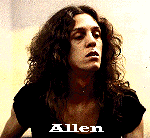 For the next few years, under a variety of names (The Noble Five, The Wildcats, The One Percent, among others), the new band played teen dens, church socials, and local juke joints. Influenced by the British bands - the Beatles, the Stones, the Yardbirds - the boys grew their hair long, which in those days meant barely brow-or ear-length. It was still long enough to get them in trouble at school. To comply with the dress code, they would slick it back with vaseline for class, and comb it out after school. But they had to shower after gym, and their coach, Leonard Skinner, often caught them literally with their hair
down. That resulted in so many trips to the principle's office, and so many suspensions, that eventually the boys quit school. They wanted to escape the hassles, and to be able to devote
themselves full-time to the band.
For the next few years, under a variety of names (The Noble Five, The Wildcats, The One Percent, among others), the new band played teen dens, church socials, and local juke joints. Influenced by the British bands - the Beatles, the Stones, the Yardbirds - the boys grew their hair long, which in those days meant barely brow-or ear-length. It was still long enough to get them in trouble at school. To comply with the dress code, they would slick it back with vaseline for class, and comb it out after school. But they had to shower after gym, and their coach, Leonard Skinner, often caught them literally with their hair
down. That resulted in so many trips to the principle's office, and so many suspensions, that eventually the boys quit school. They wanted to escape the hassles, and to be able to devote
themselves full-time to the band.
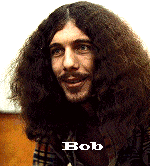 The band's search for a place to work led them to an isolated farm south of Jacksonville, near a town called Green Cove Springs. The 99 acres of "cows and mushrooms" contained a little wooden house with a tin roof, which became known as the "Hell House", with good reason. It gets very hot in Florida in the summer, especially under a tin roof with no air conditioning. (When the band later worked under stage or screen lights, they took it in stride, and didn't seem to sweat as much as other groups. They were used to the Hell House temperatures of two hundred or so degrees, and could, so to speak, take the heat.) It was here in the Hell House that the sound of Lynyrd Skynyrd was born.
The band's search for a place to work led them to an isolated farm south of Jacksonville, near a town called Green Cove Springs. The 99 acres of "cows and mushrooms" contained a little wooden house with a tin roof, which became known as the "Hell House", with good reason. It gets very hot in Florida in the summer, especially under a tin roof with no air conditioning. (When the band later worked under stage or screen lights, they took it in stride, and didn't seem to sweat as much as other groups. They were used to the Hell House temperatures of two hundred or so degrees, and could, so to speak, take the heat.) It was here in the Hell House that the sound of Lynyrd Skynyrd was born.
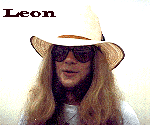 Jimmy Johnson of Muscle Shoals Sound Studio was so taken with the Quinvy demos that he offered to produce an album for a percentage of the profit, if and when it was sold. So Skynyrd borrowed money, and drove to the tiny northern Alabama hamlet of Sheffield to record for him. There were two series of sessions, in the
spring and fall of 1971. Bassist Leon Wilkeson joined them toward the end of the second series.
Jimmy Johnson of Muscle Shoals Sound Studio was so taken with the Quinvy demos that he offered to produce an album for a percentage of the profit, if and when it was sold. So Skynyrd borrowed money, and drove to the tiny northern Alabama hamlet of Sheffield to record for him. There were two series of sessions, in the
spring and fall of 1971. Bassist Leon Wilkeson joined them toward the end of the second series.
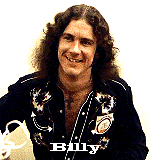 Billy Powell was one of their original roadies, until Ronnie heard him playing the piano between sessions one day. Asked why he had never mentioned that he was a player, Powell responded that he was happy to have a job as a roadie, and had no ambition to play in the band. Van Zant, however, had other ideas and before long Billy joined Lynyrd Skynyrd. Powell was one of the most musically educated of the group, having taken piano lessons most of his life. Although Skynyrd was essentially a guitar band, Powell was the one who laid down the musical backgrounds on most of their songs. It's hard to imagine, for example, what "Freebird" would sound like without his unique keyboards.
Billy Powell was one of their original roadies, until Ronnie heard him playing the piano between sessions one day. Asked why he had never mentioned that he was a player, Powell responded that he was happy to have a job as a roadie, and had no ambition to play in the band. Van Zant, however, had other ideas and before long Billy joined Lynyrd Skynyrd. Powell was one of the most musically educated of the group, having taken piano lessons most of his life. Although Skynyrd was essentially a guitar band, Powell was the one who laid down the musical backgrounds on most of their songs. It's hard to imagine, for example, what "Freebird" would sound like without his unique keyboards.
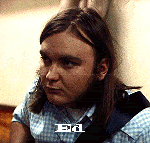 Unsure of his ability to handle the big time, bassist Leon Wilkeson left the band. In the search for his replacement, Ronnie remembered Ed King of Strawberry Alarm Clock, and somehow located him at the small bar in North Carolina where he had been working. King came down to the Hell House for a series of frenzied rehearsals, and entered the studio with the others for the Kooper-produced demos. These were recorded at Studio One in Atlanta in one live session that lasted until 3:00 AM. Of this session, Kooper said,"We recorded everything in one day onto two-track. They were so good, so well-rehearsed, that we ended up using the stuff that didn't go on the album for the B-sides of the singles."
Unsure of his ability to handle the big time, bassist Leon Wilkeson left the band. In the search for his replacement, Ronnie remembered Ed King of Strawberry Alarm Clock, and somehow located him at the small bar in North Carolina where he had been working. King came down to the Hell House for a series of frenzied rehearsals, and entered the studio with the others for the Kooper-produced demos. These were recorded at Studio One in Atlanta in one live session that lasted until 3:00 AM. Of this session, Kooper said,"We recorded everything in one day onto two-track. They were so good, so well-rehearsed, that we ended up using the stuff that didn't go on the album for the B-sides of the singles."
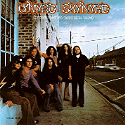 "(pronounced 'leh-nerd skin'-nerd)" was recorded at Studio One in Doraville, Georgia,(home base for the Atlanta Rhythm Section) and engineered by the brilliant Rodney Mills. Mills specialized in getting guitars to speak for themselves, and no band ever offered him a better opportunity. His work with Skynyrd began with "Simple Man", and continued throughout their career. Al Kooper was practically a member of the band on "(pronounced)"; under the pseudonym of "Roosevelt Gook" he played bass and mellotron andsang back-up.
"(pronounced 'leh-nerd skin'-nerd)" was recorded at Studio One in Doraville, Georgia,(home base for the Atlanta Rhythm Section) and engineered by the brilliant Rodney Mills. Mills specialized in getting guitars to speak for themselves, and no band ever offered him a better opportunity. His work with Skynyrd began with "Simple Man", and continued throughout their career. Al Kooper was practically a member of the band on "(pronounced)"; under the pseudonym of "Roosevelt Gook" he played bass and mellotron andsang back-up.
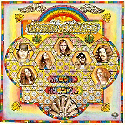 In spite of the fact that "Free Bird" was dominating the FM stations, and in spite of the critical success of their first album, neither "(pronounced)" nor its single, "Gimme Three Steps", made any impact on the charts. When Kooper took the band into the Record Plant studio in Los Angeles to begin recording the second album, everyone was feeling the pressure to produce a Top Forty hit. It didn't help that the atmosphere in the LA studio was very different from what they were used to. Kevin Elson recalled,"The problem was that we were in one studio, the Eagles were in another, Stevie Wonder was recording in a third, and John Lennon and Jackson Browne were walking around. The band just felt really unnerved a lot of the time, especially the day that John Lennon walked into our control room. They all froze - that was the end of work that day."
In spite of the fact that "Free Bird" was dominating the FM stations, and in spite of the critical success of their first album, neither "(pronounced)" nor its single, "Gimme Three Steps", made any impact on the charts. When Kooper took the band into the Record Plant studio in Los Angeles to begin recording the second album, everyone was feeling the pressure to produce a Top Forty hit. It didn't help that the atmosphere in the LA studio was very different from what they were used to. Kevin Elson recalled,"The problem was that we were in one studio, the Eagles were in another, Stevie Wonder was recording in a third, and John Lennon and Jackson Browne were walking around. The band just felt really unnerved a lot of the time, especially the day that John Lennon walked into our control room. They all froze - that was the end of work that day."
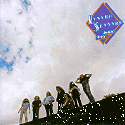 When the group went into Webb IV Studios in Atlanta in January of 1975, they had only one song ready for recording. This was "Saturday Night Special", which Burns had recorded with them before his departure. In 21 days, averaging 16 hours a day, they managed to crank out seven more songs, but the quality of the material was a sad falling-off from the previous albums. There was a reason that Van Zant named this one""Nothin' Fancy".
When the group went into Webb IV Studios in Atlanta in January of 1975, they had only one song ready for recording. This was "Saturday Night Special", which Burns had recorded with them before his departure. In 21 days, averaging 16 hours a day, they managed to crank out seven more songs, but the quality of the material was a sad falling-off from the previous albums. There was a reason that Van Zant named this one""Nothin' Fancy".
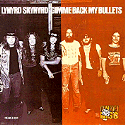 For Skynyrd's fourth album, Rudge arranged for Tom Dowd (producer of Aretha Franklin, Cream, and the Allman Brothers, among many
others) to take over the controls. Dowd's approach involved rehearsing and recording each song with the band as a unit, in contrast to Kooper's penchant for overdubbing. They learned
things from him about arrangements and chord patterns, but the resulting album, "Gimme Back My Bullets", lacked energy. It was, in fact, a low point in the band's career, the worst-selling
album they ever put out. Part of the problem was lack of time; they had had years to prepare the material that went into the first two albums, and the third and fourth were virtually written
in the studio. There were problems with the title track as well.
For Skynyrd's fourth album, Rudge arranged for Tom Dowd (producer of Aretha Franklin, Cream, and the Allman Brothers, among many
others) to take over the controls. Dowd's approach involved rehearsing and recording each song with the band as a unit, in contrast to Kooper's penchant for overdubbing. They learned
things from him about arrangements and chord patterns, but the resulting album, "Gimme Back My Bullets", lacked energy. It was, in fact, a low point in the band's career, the worst-selling
album they ever put out. Part of the problem was lack of time; they had had years to prepare the material that went into the first two albums, and the third and fourth were virtually written
in the studio. There were problems with the title track as well.
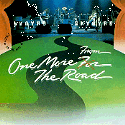 Gaines was familiar enough with Skynyrd's work that his band, Crawdaddy, played "Saturday Night Special" as part of their regular set, but there was only a month before recording was to start. He spent the month of June in marathon "cramming and jamming" sessions. The album was recorded live in the Fox Theatre in Atlanta, a small venue chosen specifically for its acoustics. With the addition of Steve Gaines, and the direction of Tom Dowd, the band turned in a classic performance. Dowd described the working arrangements that resulted in "One More for the Road": "Each night after the show I'd make them listen to the whole thing. I'd say,"We have to do this song again. This one over here, we have to change this way", and so on. We changed two or three songs a day, so that no two shows were the same, and in the end we had more than ten or twelve songs to pick from."
Gaines was familiar enough with Skynyrd's work that his band, Crawdaddy, played "Saturday Night Special" as part of their regular set, but there was only a month before recording was to start. He spent the month of June in marathon "cramming and jamming" sessions. The album was recorded live in the Fox Theatre in Atlanta, a small venue chosen specifically for its acoustics. With the addition of Steve Gaines, and the direction of Tom Dowd, the band turned in a classic performance. Dowd described the working arrangements that resulted in "One More for the Road": "Each night after the show I'd make them listen to the whole thing. I'd say,"We have to do this song again. This one over here, we have to change this way", and so on. We changed two or three songs a day, so that no two shows were the same, and in the end we had more than ten or twelve songs to pick from."
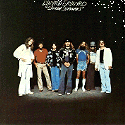
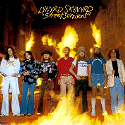 Van Zant had often said that Lynyrd Skynyrd were just "street people". From this, and from their reputation for brawling, came the title of this next album, "Street Survivors". It contained some of the most concise writing Van Zant had ever done, in part because MCA had decreed that this album was to produce at least three hit singles - that is, songs no more than three minutes long. At the time, that was as long as a song could be and still expect popular airplay. Tom Dowd remembered how difficult this was for Van Zant; "He'd come to me with a song, and say,"How long is that?", and I'd say," About 3:45", or whatever. Ronnie would say,"I can't cut no more out of that", and I'd say,"We'll speed it up and shorten the intro." When the whole thing was over, Ronnie said to me,"That's the last time I ever write a three-minute song, as long as I fuckin' live. If I want to write a book, I'm going to write a book and not a piece of toilet paper."
Van Zant had often said that Lynyrd Skynyrd were just "street people". From this, and from their reputation for brawling, came the title of this next album, "Street Survivors". It contained some of the most concise writing Van Zant had ever done, in part because MCA had decreed that this album was to produce at least three hit singles - that is, songs no more than three minutes long. At the time, that was as long as a song could be and still expect popular airplay. Tom Dowd remembered how difficult this was for Van Zant; "He'd come to me with a song, and say,"How long is that?", and I'd say," About 3:45", or whatever. Ronnie would say,"I can't cut no more out of that", and I'd say,"We'll speed it up and shorten the intro." When the whole thing was over, Ronnie said to me,"That's the last time I ever write a three-minute song, as long as I fuckin' live. If I want to write a book, I'm going to write a book and not a piece of toilet paper."

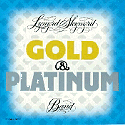 The next project was a Lynyrd Skynyrd greatest hits album. There are at least two stories about how this album got its name. According to Rossington, he and Collins met at his house in Jacksonville to discuss their options for the future. As they talked, Gary absently picked up Steve Gaines' gold-top Les Paul guitar, which Steve's widow, Teresa,had given him. Sitting there idly strumming the guitar, he noticed an old platinum dobro and thought, "Wow! Gold and platinum. At the time, Allen was talking about the need for a Skynyrd greatest hits album. He said,"Let's get all the best songs and them out on a record." So that's what we did. We came up with the cover, but it was kind of simple."
The next project was a Lynyrd Skynyrd greatest hits album. There are at least two stories about how this album got its name. According to Rossington, he and Collins met at his house in Jacksonville to discuss their options for the future. As they talked, Gary absently picked up Steve Gaines' gold-top Les Paul guitar, which Steve's widow, Teresa,had given him. Sitting there idly strumming the guitar, he noticed an old platinum dobro and thought, "Wow! Gold and platinum. At the time, Allen was talking about the need for a Skynyrd greatest hits album. He said,"Let's get all the best songs and them out on a record." So that's what we did. We came up with the cover, but it was kind of simple."
 MCA records did not initially support the project. The Skynyrd catalog sales had drastically declined and the sales department felt the release of a "Best of..." compilation would kill the
remaining single album sales. They argued that MCA would never sell an original "Second Helping" or "Street Survivors" because the new "Gold & Platinum" would contain all the premium cuts. Tsilis took the case directly to MCA's president who reluctantly approved the project. In the event, Leon was proved right. "Gold & Platinum" quickly went multi-platinum, and as a bonus succeeded in shooting the rest of the Skynyrd catalog back onto
the charts.
MCA records did not initially support the project. The Skynyrd catalog sales had drastically declined and the sales department felt the release of a "Best of..." compilation would kill the
remaining single album sales. They argued that MCA would never sell an original "Second Helping" or "Street Survivors" because the new "Gold & Platinum" would contain all the premium cuts. Tsilis took the case directly to MCA's president who reluctantly approved the project. In the event, Leon was proved right. "Gold & Platinum" quickly went multi-platinum, and as a bonus succeeded in shooting the rest of the Skynyrd catalog back onto
the charts.
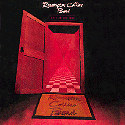
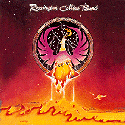 Although it was introduced with a great deal of fanfare, the Rossington-Collins band released exactly two albums ("Any Time, Any Place, Any Where" and "This Is the Way") before it fell apart. There are various
explanations for the break-up; the fact of the matter is that during a 1982 concert, Collins threw his guitar to the stage floor and walked out, not to return. The band had been drunk, drugged, and sick for so long that someone's collapse was inevitable - Collins' just happened to come first. A 1979 article on RCB includes the following quote from Rossington, which gives some idea of their state of mind.
Although it was introduced with a great deal of fanfare, the Rossington-Collins band released exactly two albums ("Any Time, Any Place, Any Where" and "This Is the Way") before it fell apart. There are various
explanations for the break-up; the fact of the matter is that during a 1982 concert, Collins threw his guitar to the stage floor and walked out, not to return. The band had been drunk, drugged, and sick for so long that someone's collapse was inevitable - Collins' just happened to come first. A 1979 article on RCB includes the following quote from Rossington, which gives some idea of their state of mind.
 After the demise of RCB, the band members worked on various individual projects. Rossington and his wife, Dale Krantz, formed the imaginatively-named "Rossington-Rossington",
which released a lackluster album for MCA Records. After being dropped by MCA, they pulled up their roots in Jacksonville, Florida, and moved to Jackson Hole, Wyoming. They secured a
contract with Atlantic Records and,under the name of the "Rossington Band", put out another two lackluster albums. Artimus Pyle formed a band which made two albums without achieving much commercial success. Leon Wilkeson, Billy Powell, and Ed King each spent time playing with various Christian bands.
After the demise of RCB, the band members worked on various individual projects. Rossington and his wife, Dale Krantz, formed the imaginatively-named "Rossington-Rossington",
which released a lackluster album for MCA Records. After being dropped by MCA, they pulled up their roots in Jacksonville, Florida, and moved to Jackson Hole, Wyoming. They secured a
contract with Atlantic Records and,under the name of the "Rossington Band", put out another two lackluster albums. Artimus Pyle formed a band which made two albums without achieving much commercial success. Leon Wilkeson, Billy Powell, and Ed King each spent time playing with various Christian bands.
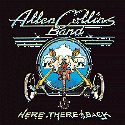 Allen Collins went on to form a band called - can you guess by now? - the Allen Collins Band. Although this was the most Skynyrd-like of the post-crash bands, by this time Collins' relationship with MCA had become too strained to recover. They released one ACB album, but there was a management shake-up at MCA during this time and the new boss, Irving Azoff, wanted nothing to do with Collins.
Allen Collins went on to form a band called - can you guess by now? - the Allen Collins Band. Although this was the most Skynyrd-like of the post-crash bands, by this time Collins' relationship with MCA had become too strained to recover. They released one ACB album, but there was a management shake-up at MCA during this time and the new boss, Irving Azoff, wanted nothing to do with Collins.
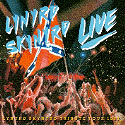 Fittingly, the Lynyrd Skynyrd Tribute Tour made its debut in September,1987, at the Charlie Daniels' Volunteer Jam XIII. What had originally been planned as a single show grew to a week, then into a full-fledged 1987 tour (documented on the live album "Southern By the Grace of God"). The audience response was overwhelming, as hard-core Skynyrd fans of all ages greeted the band with unbridled enthusiasm.
Fittingly, the Lynyrd Skynyrd Tribute Tour made its debut in September,1987, at the Charlie Daniels' Volunteer Jam XIII. What had originally been planned as a single show grew to a week, then into a full-fledged 1987 tour (documented on the live album "Southern By the Grace of God"). The audience response was overwhelming, as hard-core Skynyrd fans of all ages greeted the band with unbridled enthusiasm.
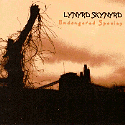 The new Lynyrd Skynyrd signed a deal with Atlantic Records in 1990, then moved to Capricorn in 1994. With the release of their Capricorn debut album, "Endangered Species", Lynyrd Skynyrd produced a unique and refreshing project - a completely acoustic album, a first for the band. "We'd wanted to do an acoustic album for years. All of the songs we write start out just with us sitting around jamming," said Johnny Van Zant. "This is like a whole new outlook on Skynyrd, kind of more intimate and behind-the-scenes album. It's like inviting everyone into our living room and playing for them, and having a good time. That's the feel."
The new Lynyrd Skynyrd signed a deal with Atlantic Records in 1990, then moved to Capricorn in 1994. With the release of their Capricorn debut album, "Endangered Species", Lynyrd Skynyrd produced a unique and refreshing project - a completely acoustic album, a first for the band. "We'd wanted to do an acoustic album for years. All of the songs we write start out just with us sitting around jamming," said Johnny Van Zant. "This is like a whole new outlook on Skynyrd, kind of more intimate and behind-the-scenes album. It's like inviting everyone into our living room and playing for them, and having a good time. That's the feel."
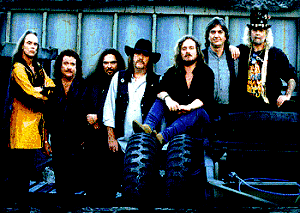
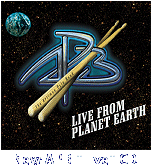
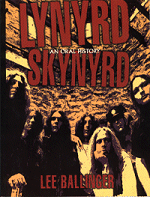 LYNYRD SKYNYRD
LYNYRD SKYNYRD